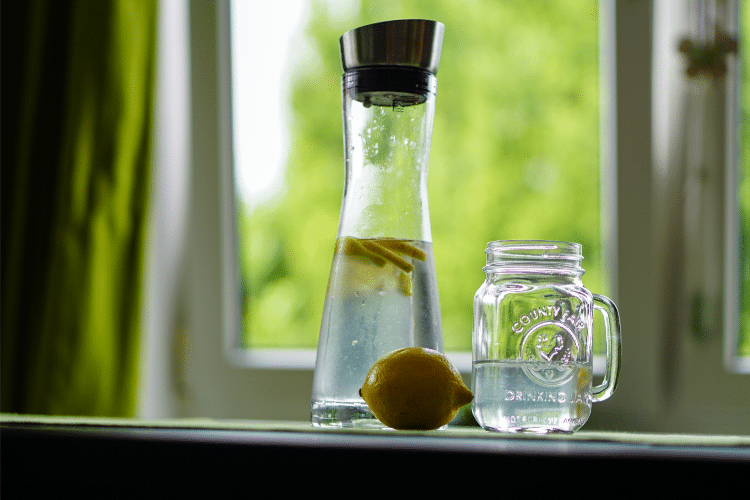
How Can I Prevent Dehydration? Here’s What You Need to Know
Dehydration happens when you lose more bodily fluids than you’re retaining, and since water forms a critical component of our body mass, the body doesn’t take this state of dehydration with levity. Staying properly hydrated will help your body stave off negative complications or side effects, helping you go through the day seamlessly. It’s especially dangerous for older people and young children.
Some ways through which you can prevent dehydration includes:
Table of Contents
Paying Close Attention to the Physical Symptoms of Dehydration
Some physical symptoms of dehydration, which you might experience when there’s a fluid shortage in your body include:
- Headache
- Vomiting
- Fatigue
- Loss of energy
- Irritability
It is at this point you should act on the imminent dehydration by responding to these “thirst cues” which your body frantically tries to send out. With a bottle of water kept handy, it would be easy to take a swig of water.
When you lose electrolytes, you need to replace them. There are many over-the-counter products for doing this. Most people get these through their regular meals by eating meats, vegetables, and fruits. But there are also sports drinks, gels, candies and gummies you can take. There’s even a tablet that you can dissolve in water and drink.
If you’re planning outdoor activities, try to schedule them for the cooler parts of the day. Make sure that you’re dressed in light, cool clothing when the weather is warm.
Are You at High Risk for Dehydration? You Should Know!
Some population groups have a higher risk of dehydration than others. these groups include infants, children, and elderly individuals.
For infants and younger kids
The effect of dehydration starts earlier, with their bodies feeling the impact of fluid loss quicker than for older children and adults.
For older individuals
It just might be because of a loss of general senses, inclusive of the sense of smell.
Prevention for Babies and Young Children
Children lose fluids and electrolytes just like adults do, so make sure your child has access to plenty of water and other fluids, especially if she’s very physically active or if it’s a warm day. And make sure your child eats plenty of fruits and veggies — they contain lots of water.
If your infant or young child is dehydrated, you can try the “baby” version of a sports drink, like Pedialyte or Equalyte. If an over-the-counter solution isn’t available, give her small sips of water. Don’t try to make up your own homemade version. Be sure to check with your pediatrician if your child doesn’t get better quickly.
Prevention for Older Adults
Dehydration is especially dangerous for older adults because their bodies store less water. Some points to remember:
- Don’t wait until you feel thirsty to drink. Make sure you’re drinking fluids all day whether you’re thirsty or not.
- Make sure water is within easy reach day and night.
- Have between 6 and 8 cups of fluids a day. If temperatures are high or you have a fever, drink more.
- Don’t skip meals. You typically get much of your fluids from regular meals.
- Drink fruit juices, sports drinks, milk, and broth, but avoid high-protein drinks and alcoholic beverages. They can dehydrate you.
- Eat a balanced diet that includes fruits and vegetables. They contain large amounts of water, salt, and vitamins and can help prevent dehydration
Inspecting Your Urine for Symptoms of Dehydration
It isn’t such a hard thing to do: simply look at the color of your urine as often as you take a pee. You would discover that while sometimes it is clear, at some other times, the color changes to amber or deep yellow. Deep yellow urine color signals dehydration, and you need water, lots of it!
Check Your Mouth for Symptoms of Dehydration
Inspecting the insides of your mouth for moistness is another quick way to check for dehydration. When it looks dry, it shows you are dehydrated.
Dehydration Tips
8 Glasses of Water Per Day: Myth or Truth?
We have taken literally, what was supposed to be a general guideline on water/fluid intake. Depending on activity level and age, the amount of water needed by each person per day differs. As a matter of fact, you might need up to 15 glasses of water per day if you’re highly active!
Upping Your Fluid Intake When Needed is a Necessary Skill
If you’re a strong athlete, you might be losing lots of water during athletic activities such as long-distance races. This could amount to 10% of your body weight during major athletic events. This requires being sensitive to your bodily need for fluids per day and per event.
It also helps to take in a glass of water when waking up, as you have spent about 8 hours asleep, without taking in any water. Placing stainless steel straws and a bottle of water by your bedside might help achieve this more easily.
Weather changes also require fluid intake changes, as do moments of ill-health. Your body mass is also a critical measure of how much fluid intake you need to have, for optimal functioning.
Some Foods Help Stave Off Dehydration: Know (and Eat) Them
The rate at which you get dehydrated might be less if you fill your diet with lots of fruits and vegetables; those that have high water content. Some of them include berries, grapes, lettuce, kale, and watermelon. It’s not enough to know these foods, fruits, and vegetables you have to actively surround yourself with them. If they are within close range, it will motivate you to eat them and as such, prevent dehydration.








